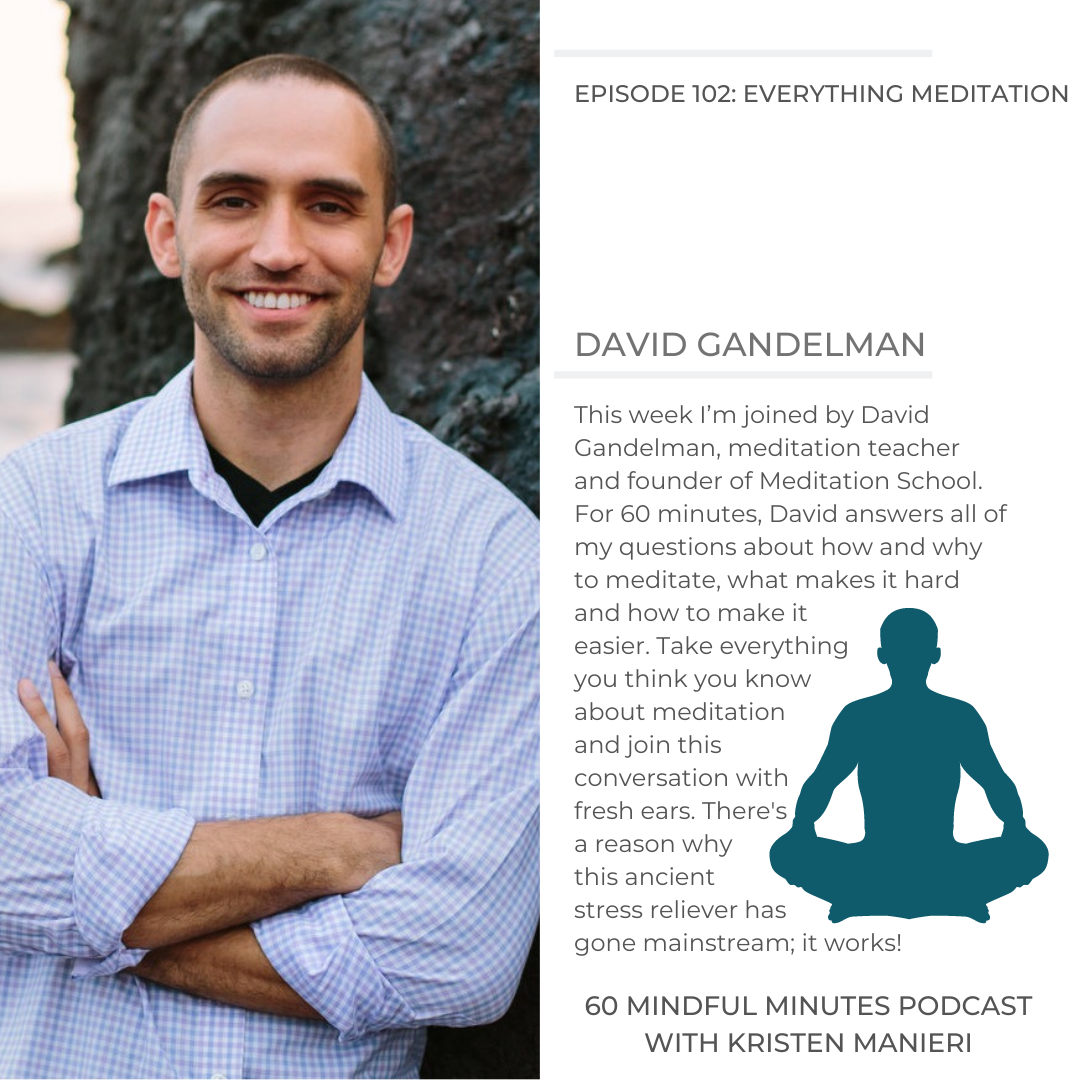Just like any new habit we want to create and maintain, meditation takes consistency and patience. It’s simple—you don’t need any special technique or expensive equipment—but it is challenging. Staying focused and corralling the mind each time it wanders isn’t an easy feat but there are things we can do to make it easier.
1. FIND YOUR BEST TIME OF DAY
You may find you can focus with less effort in the morning before your day gets going. Or perhaps you are best to meditate at night when your mind starts to get sleepy. Spend a week or two exploring different times—morning, afternoon and evening—and see if you can discover a time when you seem to flow with the current more than against it.
2. HAVE A MEDITATION ZONE
There’s real benefit to having a set place where you do your meditation every day. For starters, returning to the same location every day helps the brain wire the habit. More importantly, you have the opportunity to make your Zen zone as comfortable and inviting as possible. Really claim this little place in your home as your special spot where you re-inhabit yourself. It doesn’t have to be anything fancy or even take up a lot of room. With a blanket, a few pillows and some nice lighting, you can create a cozy corner that beckons you back each day. Here are a few ideas to inspire you.

Find these mala beads, as well as many others, on Etsy.com.
3. USE BEADS
I have a set of mala beads I use sometimes to anchor my practice. Each time I inhale, I move my fingers over to the next bead. I exhale and move to another bead. A true mala necklace will have 108 beads, which gives you an abundance of opportunities to keep coming back to your practice, but you can create a string of beads of any length.
4. USE A MANTRA
Having a sound, word or phrase that you repeat gives your mind something to hang on to and return to when it wanders. In Light Watkin’s book Bliss More, the phrase “ah-hum” is recommended as an anchoring sound. In Zen Min, Beginner’s Mind, Shunryu Suzuki advises we count to ten slowly with each exhalation. I sometimes use the phrase “namaste” to anchor my practice. Explore a mantra that might work for you.
5. FOLLOW THE BREATH
One of my favorite ways to meditate is to follow the breath during each inhalation and each exhalation. You’ll notice that when we breathe, all sorts of movements and sensations can be felt around the body. There’s the feeling of the air moving past your nostrils and into the nose. You can then feel it move through the throat and into the lungs, expanding the chest as the lungs fill. Moving downward, we can also feel how the breath moves our diaphragm and then the belly. This entire course reverses itself for the exhalation. When we really tune into it, it can be almost hypnotic.

Check out my interview with Mindfulness Teacher David Gandelman in episode 102 of 60 Mindful Minutes.
6. DROP YOUR EXPECTATIONS
There’s a common misconception about meditation that’s really throwing a wrench into our ability to be satisfied with our practice: we think we should bliss out entirely every time we cross our legs and close our eyes.
Anyone who has attempted meditation, and especially those who have practiced for a long time, knows that aiming for bliss can be a tricky target. For starters, it sets us up with an expectation that our mind is constantly weighing our actual experience against. Meeting meditation with expectation, even if we expect it to be difficult or worthless, creates a context for our practice instead of allowing whatever unfolds to unfold. When we meet our meditation practice with commitment and sincerity but without expectation, we can ease into the as-is nature of what lies ahead for us rather than clinging to an idea of how it should be.
7. REWARD YOURSELF
My favorite cup of tea awaits me when my meditation timer goes off. It’s a small thing but it’s my reward for showing up to my practice. If you have a friend who is also attempting to solidify her practice, consider gamifying your meditation goals by checking in with each other and maybe setting rewards when you both reach your aim. Perhaps there’s a special meditation cushion you’ve wanted to purchase. Make that the reward for 30 straight days of daily meditation.
 8. TRACK YOUR PROGRESS
8. TRACK YOUR PROGRESS
Meditation apps such as Insight Timer keep track of your meditations so you can view your progress. My friend Virginia really loves being able to look at her app and see how long and how much she has meditated. It gives her a real sense of accomplishment that deepens her commitment to her practice. Beyond apps, you could simply use your journal to track your practice, set goals and celebrate milestones. What we track, improves. What we appreciate, appreciates.
9. LEAN INTO PRACTICE
Have you ever tried to learn an instrument, memorize facts for a test or recall what you ate for dinner two Tuesdays ago? Chances are you became acquainted with the margins of your mind. The mind has confines which can be stretched and widened as we learn new things, engage in activities that force us to focus and we actively attempt to recall events and details from the past. Though widely praised for its ability to reduce stress, meditation is also how we widen the margins of our mind and increase our capacity to learn, recall and focus.
10. BEFRIEND YOUR MIND
You have millions of neurons firing every second of the day. Many of those will become conscious thoughts and will float across your awareness. That’s just the brain doing what the brain does, no different from the lungs and the heart doing what they are designed to do to help you survive. The mind thinks, plans, worries, tallies, sorts and ruminates as part of your survival. When we can embrace the fundamental functioning of the mind and drop our tendency to resist thoughts, we usually find that we can meet the mind with more ease. It makes no sense to set aside twenty or thirty minutes each day to fight the mind. That’s a losing battle. But when we can make friends with the mind, we can slowly learn to meditate alongside it, allowing it to do its thing without distracting us too much. It takes time and practice, but the more you surrender to the mechanisms of the mind, the more it lets go of us.
________________________________________________________________
ABOUT KRISTEN
Kristen Manieri is a Certified Mindfulness and Resilience Teacher specializing in: stress reduction, energy management, mindset, resilience, meditation, habit formation, rest rituals, and self-care. As the host of the weekly 60 Mindful Minutes podcast, an Apple top 100 social science podcast, Kristen has interviewed over 100 authors and thought leaders about what it means to live a more conscious, connected, intentional and joyful life. Learn more at kristenmanieri.com/work-with-me.
